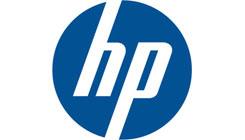Hewlett-Packard Enters LTO-6 Tape Space
Hewlett-Packard is investing further in LTO-6 tape technology with its just-announced StoreEver tape portfolio. With spinning disks gobbling up more and more backup capacity, tape is on the decline: In August 2012, the Santa Clara Consulting Group found that tape sales had declined 14 percent year-over-year, from $178.2 million to $152.7 million. Proprietary tape formats have largely disappeared, the firm added, leaving Linear Tape Open as the dominant format with 93 percent of total sales; last-generation LTO-5 was the only LTO tape format that had fared somewhat well. In the tape market, capitalizing on the latest technology equals survival. Within twelve months of its introduction, LTO5 had become the dominant format. Simon Watkins, the worldwide product manager for HP’s tape business, suggested in an interview that the company sees same aggressive ramp-up for LTO-6. The new LTO-6 spec offers 400-Mbits/s in performance—using a 2.5:1 compression ratio, that’s up to 1.4TB of data transferred per hour. The drives hold 2.5 TB natively or 6.25 TB, versus the 1.5 terabytes of native data/3 TB (compressed) offered by LTO-5. A variety of smaller companies (including Tandberg Data, Imation and Fujifilm) have raced out of the gate with their own LTO-6 products. Tandberg’s StorageLoader, for example, offers 50TB; the StorageLibrary T24 up to 150TB; and the StorageLibrary T40+ up to 250TB. Now, it’s HP’s turn. In general, customers should expect to pay 2.5 cents per gigabyte, the company said. HP’s solutions will scale up to 44 petabytes in a single system, nearly as large as HP Autonomy’s 50 PB, disk-based cloud. Tape’s advantage lies in its energy consumption; on top of that, HP has instituted aggressive power management as part of its product build. “What we are seeing is that the role of tape is evolving, from it historical role short-term backup medium and really evolving into a broader set of storage goals, including the cloud and disaster recovery, the last line of defense,” Watkins said. StoreEver offers a larger roller and tape lifter that minimizes drag; a data-rate matching algorithm, which slows or speeds up the tape mechanism to match the data rate coming from the host; and TapeAssure, an existing management technology that monitors the drive, libraries and media. It can also be paired with a HP StoreOnce de-duplication solution to further minimize backup costs. Image: HP

